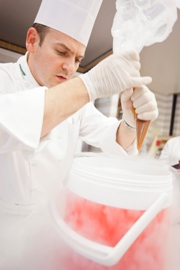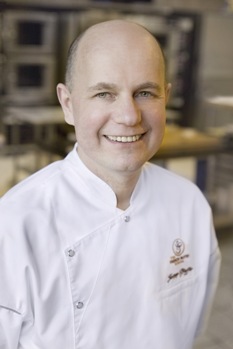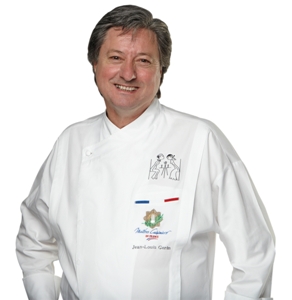Chefs Speak Out: The Royal Treatment—Food Fit for Kings
Saturday, 03 November 2012 21:48
 Moti Mahal Delux, a legendary high-end restaurant chain that is responsible for the invention of tandoori chicken, operates more than 100 locations throughout India, Nepal and London. This year, chef Gaurav Anand, a native of Punjab, India, has opened the restaurant’s first U.S. location, bringing the flavorful cuisine of the Mughal Empire to Manhattan’s Upper East Side.
Moti Mahal Delux, a legendary high-end restaurant chain that is responsible for the invention of tandoori chicken, operates more than 100 locations throughout India, Nepal and London. This year, chef Gaurav Anand, a native of Punjab, India, has opened the restaurant’s first U.S. location, bringing the flavorful cuisine of the Mughal Empire to Manhattan’s Upper East Side.
By Lynn Schwartz
Gaurav Anand is no stranger to Mughlai food nor to Moti Mahal Delux. “I have been eating this food since my childhood,” he says. “There is nothing canned or frozen. It’s fresh, well-balanced and layered with spices.” Mughlai cuisine, known for its artful blending of spices, magical flavors, aromas and textures, dates back to the Imperial Kitchens of the Mughal Empire, when royal chefs composed the rich and exotic cooking style for Mughlai kings.

 Good practices of social-media conversation honor five key principles just as they do within teams and in kitchens.
Good practices of social-media conversation honor five key principles just as they do within teams and in kitchens. Easy, free and completely impartial, an assignment board guarantees that everyone shares equally in the assignments over a few days. Say these educators, the system is beautiful in its simplicity.
Easy, free and completely impartial, an assignment board guarantees that everyone shares equally in the assignments over a few days. Say these educators, the system is beautiful in its simplicity. Produced for only $0.88 a gallon to operate the college’s vehicles, the savings from converting cooking oil to fuel rather than purchasing regular diesel is huge.
Produced for only $0.88 a gallon to operate the college’s vehicles, the savings from converting cooking oil to fuel rather than purchasing regular diesel is huge. The Culinary Institute of America (CIA) is launching a new major in Culinary Science beginning in February 2013—one of a series of new academic programs in bachelor’s-degree studies at the college. The programs will advance the culinary profession and position CIA graduates for career success in the dynamically evolving foodservice industry.
The Culinary Institute of America (CIA) is launching a new major in Culinary Science beginning in February 2013—one of a series of new academic programs in bachelor’s-degree studies at the college. The programs will advance the culinary profession and position CIA graduates for career success in the dynamically evolving foodservice industry. Chef Jacquy Pfeiffer, cofounder of The French Pastry School of Kennedy-King College at City Colleges of Chicago, has been named many things in his exceptional career in pastry: Pastry Chef of the Year at the 2004 World Pastry Forum; Celebrity Pastry Chef of the Year at the 2005 Jean Banchet Awards; and a Kings of Pastry in the 2009 documentary, “Kings of Pastry,” to name a few.
Chef Jacquy Pfeiffer, cofounder of The French Pastry School of Kennedy-King College at City Colleges of Chicago, has been named many things in his exceptional career in pastry: Pastry Chef of the Year at the 2004 World Pastry Forum; Celebrity Pastry Chef of the Year at the 2005 Jean Banchet Awards; and a Kings of Pastry in the 2009 documentary, “Kings of Pastry,” to name a few. New England Culinary Institute announced Sept. 10 the hiring of celebrity chef Jean-Louis Gerin as its new campus executive chef.
New England Culinary Institute announced Sept. 10 the hiring of celebrity chef Jean-Louis Gerin as its new campus executive chef. According to the author of a new book, Demystifying Food from Farm to Fork, the benefits of organic foods are not justified by their cost.
According to the author of a new book, Demystifying Food from Farm to Fork, the benefits of organic foods are not justified by their cost.